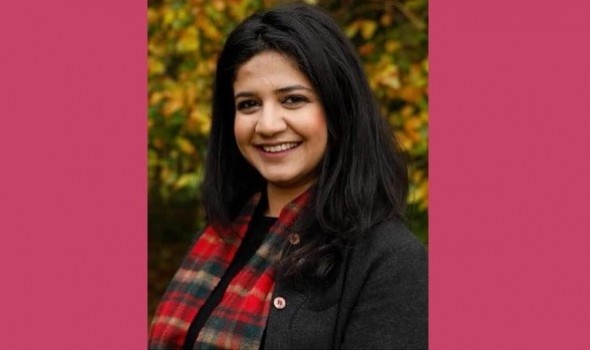The Glasgow Girl who’s standing for Parliament
The Glasgow Girl who’s standing for Parliament

After Roza Salih was elected as a students’ representative at Strathclyde University, people often laughed at her radical proposals - such as the introduction of scholarships for asylum seekers.
When she put the idea to the university’s principal, he retorted, “Do you think I have bags of money lying under the table?”
Without batting an eye, Roza replied, “Yes! I know how much you earn.”
The principal had learned, like Roza’s fellow students, that she wasn’t afraid of speaking her mind.
Her outspokenness paid off. A year later, the first three scholarships for asylum seekers were announced. Today, Strathclyde University offers 10 such scholarships a year.
Roza also campaigned for maternity and paternity concessions, accessibility for people with disabilities, and equality training for staff. She also inaugurated Black History Month activities.
“I wanted to make a difference during my time there,” she recalls. “I don’t see the point, if you’re in a position of power, not to make a change.”
Roza arrived in Scotland in 2002 as a 12-year-old Iraqi Kurdish asylum seeker, with her parents and younger sister. Now she is running as a Scottish National Party candidate for the Scottish Parliament.
“It’s an extraordinary journey,” she admits. “I don’t even know how I got here!”, she laughs. But a few minutes conversation with her makes it clear what brought her to this point: she emanates strength and determination: you can feel her energy even through a Zoom screen.
“I’ve always been very vocal,” she says- which may be the understatement of the year: she has spent 19 years in the UK, 16 of them as an activist.
She began in 2005, when she was just 15, with a group of Drumchapel High School friends who became known as the Glasgow Girls. They learnt that one of their friends, Agnesa, and her family, had been taken from home in a dawn raid and were going to be deported. Roza and friends started campaigning for their release — and eventually won.
“At that time, people didn’t really know much about asylum seekers,” she explains. “There weren’t any charities to support us, there were no services to help us, no one was speaking up for us. That’s why the Glasgow Girls were so powerful. Because we became the voice for so many.” (Their story was turned into a musical co-produced by the National Theatre of Scotland.)
Roza’s experience as an asylum seeker was not simple: her family had to wait eight years for refugee status. During that time they faced almost daily discrimination, ranging from Roza’s inability to go on school trips with her friends to basic food shopping. “They would give us food stamps to buy food,” she remembers. “We were discriminated against so much because of them. My mum and I, we would get so stressed just to go to the shops and buy some food. These simple things made our lives so much harder.”
But despite struggling through the system, Roza felt that most of the community fully embraced her. “I didn’t choose Scotland, but it has made me who I am today,” she says proudly. Her circle of friends also made a difference.
It is her personal experience that has made her so vocal in advocating equality. “Equal opportunities are so important for ethnic minorities, because so many of them feel like they can’t contribute to society. They don’t get the chance to.”
The turning point for Roza and her family, she thinks, was getting refugee status in 2010: their lives changed. The limbo of being asylum seekers was over.
“I used to feel like I wasn’t part of society, like I couldn’t integrate,” she says. But as soon as she received her status, she felt Scottish. She was able to go to university, where she studied politics and law and graduated with honours. She now works as office manager for Christopher Stephens, the Scottish National Party MP for Glasgow South West. She could soon become the first refugee member of the Scottish Parliament.
“I am a refugee, but I am also more than that,” she is eager to point out. “I am a woman, I’m a proud new Scot, and this is my home.”
Roza’s shift from activism to politics occurred when she realised that, despite all the good work by charities and activists, “we don’t get to make decisions, we’re not where power is. And I thought: I could be that person. I want to represent my community in Parliament.”
Yet she was incredulous when told she had been chosen as a candidate for the Scottish Parliament election this May. “Someone called me, and I just started crying my eyes out. I couldn’t believe it,” she recalls
She ended up being the top candidate for her party in the Glasgow region, which she considers her biggest achievement. She feels it’s a sign that the community is truly inclusive.
If elected, she says, her priority will be to draft legislation providing education for all, regardless of immigration status. “Many migrants are excluded from studying in higher education. This right is taken away from them … But education should be available to everyone. It’s a right.”
“I want to live in a society where people are equal and are treated fairly,” she says. “That’s all I’m seeking.”


